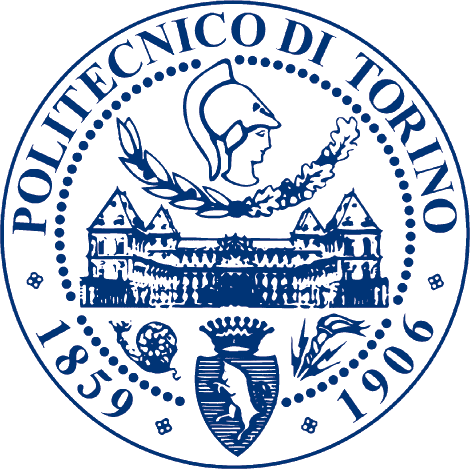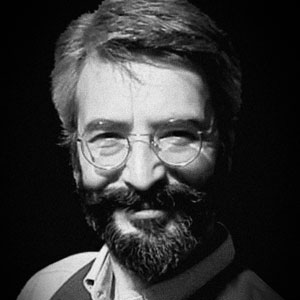Giovanni Antonio Cignoni
- Progetto HMR
- https://www.progettohmr.it/
Verità veloci e storia dell'informatica
 Giovanni A. Cignoni è un consulente che lavora nel trasferimento tecnologico con particolari competenze in ingegneria del software, modellazione e simulazione di sistemi, gestione dell’informatica, business intelligence. Su questi temi ha partecipato a progetti di ricerca internazionali, pubblicato lavori scientifici e insegnato alle università di Pisa, Firenze e Padova.
Dal 2006, il suo doppio si dedica a “Hackerando la Macchina Ridotta” (www.progettoHMR.it), un progetto di ricerca e comunicazione che adotta l’ostinata curiosità degli hacker per studiare e raccontare la storia dell’informatica a partire dai fatti, quelli hardware e software soprattutto.
Uno dei due, dal 2015, è titolare del corso di Storia dell’Informatica alla laurea in Informatica Umanistica dell’Università di Pisa.
Giovanni A. Cignoni è un consulente che lavora nel trasferimento tecnologico con particolari competenze in ingegneria del software, modellazione e simulazione di sistemi, gestione dell’informatica, business intelligence. Su questi temi ha partecipato a progetti di ricerca internazionali, pubblicato lavori scientifici e insegnato alle università di Pisa, Firenze e Padova.
Dal 2006, il suo doppio si dedica a “Hackerando la Macchina Ridotta” (www.progettoHMR.it), un progetto di ricerca e comunicazione che adotta l’ostinata curiosità degli hacker per studiare e raccontare la storia dell’informatica a partire dai fatti, quelli hardware e software soprattutto.
Uno dei due, dal 2015, è titolare del corso di Storia dell’Informatica alla laurea in Informatica Umanistica dell’Università di Pisa.
 Giovanni A. Cignoni is a consultant who works in technology transfer. His main expertises are in software engineering, system modeling & simulation, IT management, business intelligence. On these topics he has participated in international research projects, published scientific papers and held courses at the universities of Pisa, Florence and Padua.
Since 2006, his double is devoted to “Hackerando la Macchina Ridotta” (www.progettoHMR.it), a research and communication project that adopts the stubborn curiosity of hackers to study and tell the history of computer science starting from the very facts, mainly the hardware and software ones.
One of the two, since 2015, holds the course of History of Computing at the degree in Digital Humanities of the University of Pisa.
Giovanni A. Cignoni is a consultant who works in technology transfer. His main expertises are in software engineering, system modeling & simulation, IT management, business intelligence. On these topics he has participated in international research projects, published scientific papers and held courses at the universities of Pisa, Florence and Padua.
Since 2006, his double is devoted to “Hackerando la Macchina Ridotta” (www.progettoHMR.it), a research and communication project that adopts the stubborn curiosity of hackers to study and tell the history of computer science starting from the very facts, mainly the hardware and software ones.
One of the two, since 2015, holds the course of History of Computing at the degree in Digital Humanities of the University of Pisa.
SESSIONE 7. Scuola digitale e formazione
Verità veloci e storia dell’informatica
 Sfruttiamo “The Game”, il recente libro di Alessandro Baricco, come spunto per discutere del racconto banalizzato dell’informatica che, purtroppo, si ascolta sempre più frequentemente. Un progetto di ricerca in storia dell’informatica prova invece ad andare controcorrente.
Il libro di Baricco è una lettura piacevole: alcune interpretazioni della rivoluzione digitale fanno riflettere. Tuttavia, un esame attento rivela diversi errori e la serie che si trova alle pp. 23-24 è un bel caso di studio. Interessante anzi, perché gli errori non sono di Baricco. Sono una summa del racconto grossolano dell’informatica che, tranne poche eccezioni, prospera in narrativa, giornali, documentari, pure testi scolastici.
Fra i presunti portati della rivoluzione digitale, Baricco discute la “verità veloce”: un concetto che raccoglie tutti quei casi in cui, per renderli più appetibili, i fatti sono ritoccati, a volte semplificati a volte esagerati, in generale resi più aerodinamici per arrivare prima e più lontano – dai clickbait alle fake news insomma. Gli errori di Baricco rilevano che anche lui (come molti) ha assorbito la vulgata dell’informatica e la ripete rendendola accattivante con la sua prosa: è vittima e complice della verità veloce.
Alternativa all’informatica delle “verità veloci” è l’esperienza di Hackerando la Macchina Ridotta. È un progetto di ricerca indipendente nato nel 2006 con lo scopo di recuperare e raccontare le storie e le tecnologie dei primi calcolatori – italiani, ma non solo. Come particolarità di metodo, e riprendendo il significato originale di hacker (non un pirata, ma uno curioso di come le cose funzionino), HMR pone la piena comprensione delle tecnologie come prerequisito per la loro interpretazione in prospettiva storica.
HMR propone una visione razionale della storia dell’informatica, esente dalle semplificazioni, dalle esagerazioni e dalle mitizzazioni di pochi personaggi tipiche dei media da cassetta. La condivisione con il pubblico dei risultati di ricerca è un obiettivo di HMR motivato non solo dall’inevitabile presenza del “digitale” nel quotidiano di tutti, ma anche dalla consapevolezza dei danni di un cattivo storytelling. Spiegare l’informatica per luoghi comuni, raccontare che è stata “inventata” nei garage da ragazzotti che neanche avevano completato l’università, non aiuta a far capire la necessità di investire nella ricerca né incentiva i ragazzi a studiare.
Sfruttiamo “The Game”, il recente libro di Alessandro Baricco, come spunto per discutere del racconto banalizzato dell’informatica che, purtroppo, si ascolta sempre più frequentemente. Un progetto di ricerca in storia dell’informatica prova invece ad andare controcorrente.
Il libro di Baricco è una lettura piacevole: alcune interpretazioni della rivoluzione digitale fanno riflettere. Tuttavia, un esame attento rivela diversi errori e la serie che si trova alle pp. 23-24 è un bel caso di studio. Interessante anzi, perché gli errori non sono di Baricco. Sono una summa del racconto grossolano dell’informatica che, tranne poche eccezioni, prospera in narrativa, giornali, documentari, pure testi scolastici.
Fra i presunti portati della rivoluzione digitale, Baricco discute la “verità veloce”: un concetto che raccoglie tutti quei casi in cui, per renderli più appetibili, i fatti sono ritoccati, a volte semplificati a volte esagerati, in generale resi più aerodinamici per arrivare prima e più lontano – dai clickbait alle fake news insomma. Gli errori di Baricco rilevano che anche lui (come molti) ha assorbito la vulgata dell’informatica e la ripete rendendola accattivante con la sua prosa: è vittima e complice della verità veloce.
Alternativa all’informatica delle “verità veloci” è l’esperienza di Hackerando la Macchina Ridotta. È un progetto di ricerca indipendente nato nel 2006 con lo scopo di recuperare e raccontare le storie e le tecnologie dei primi calcolatori – italiani, ma non solo. Come particolarità di metodo, e riprendendo il significato originale di hacker (non un pirata, ma uno curioso di come le cose funzionino), HMR pone la piena comprensione delle tecnologie come prerequisito per la loro interpretazione in prospettiva storica.
HMR propone una visione razionale della storia dell’informatica, esente dalle semplificazioni, dalle esagerazioni e dalle mitizzazioni di pochi personaggi tipiche dei media da cassetta. La condivisione con il pubblico dei risultati di ricerca è un obiettivo di HMR motivato non solo dall’inevitabile presenza del “digitale” nel quotidiano di tutti, ma anche dalla consapevolezza dei danni di un cattivo storytelling. Spiegare l’informatica per luoghi comuni, raccontare che è stata “inventata” nei garage da ragazzotti che neanche avevano completato l’università, non aiuta a far capire la necessità di investire nella ricerca né incentiva i ragazzi a studiare.
Fast truth and History of Computing
 We will use “The Game”, a book by Alessandro Baricco, to discuss the trivialized narrative of computer science that, unfortunately, is heard more and more frequently. Then we will present HMR, a research project about history of computing that is trying to go against the current.
The Book by Baricco is a pleasant reading: some of his interpretations of the digital revolution are good food for thought. However, a remarkable series of errors can be found at pages 23-24: we use them as a case study.
The most interesting fact is that the errors are not by Baricco. They are a good excerpt of the trivialized narrative of computer science which, with a few exceptions, thrives in fiction, newspapers, documentaries, even scholastic texts.
Among the presumed effects of the digital revolution, Baricco discusses the “fast truth”: a concept that collects all those cases in which facts are altererd to make them more attractive, sometimes simplified, sometimes exaggerated, in general made aerodynamic to arrive earlier and farther – in short, everything from clickbaits to fake news.
The errors in the text reveal that Baricco (like many) has assimilated the vague narrative of computer science and he is repeating it, moreover making it captivating with his prose. He is a victim and an accomplice of fast truth.
As alternative to computer science fast truths, we propose the experience of “Hackerando la Macchina Ridotta”, an independent research project started in 2006. The aim of HMR is recovering and telling technologies and stories about early computers – Italian ones in particular, but not only. As choiche of method, inspired by the original meaning of hacker (not a pirate, but someone curious about the inner working of things), HMR places deep understanding of technologies as a prerequisite for their historical interpretation.
HMR proposes a rational vision of the history of computer science, free of simplifications, exaggerations and myths usually spread by media. Sharing research results with the public is a goal of HMR motivated not only by the inevitable presence of “digital” in everyone’s everyday life, but also by the awareness of the damages made by bad storytelling.
Explaining computer science by cliches, telling that it has been “invented” in garages by youngsters who had not even completed university, it does not help in understanding the need for investment in research or in encouraging children to study.
We will use “The Game”, a book by Alessandro Baricco, to discuss the trivialized narrative of computer science that, unfortunately, is heard more and more frequently. Then we will present HMR, a research project about history of computing that is trying to go against the current.
The Book by Baricco is a pleasant reading: some of his interpretations of the digital revolution are good food for thought. However, a remarkable series of errors can be found at pages 23-24: we use them as a case study.
The most interesting fact is that the errors are not by Baricco. They are a good excerpt of the trivialized narrative of computer science which, with a few exceptions, thrives in fiction, newspapers, documentaries, even scholastic texts.
Among the presumed effects of the digital revolution, Baricco discusses the “fast truth”: a concept that collects all those cases in which facts are altererd to make them more attractive, sometimes simplified, sometimes exaggerated, in general made aerodynamic to arrive earlier and farther – in short, everything from clickbaits to fake news.
The errors in the text reveal that Baricco (like many) has assimilated the vague narrative of computer science and he is repeating it, moreover making it captivating with his prose. He is a victim and an accomplice of fast truth.
As alternative to computer science fast truths, we propose the experience of “Hackerando la Macchina Ridotta”, an independent research project started in 2006. The aim of HMR is recovering and telling technologies and stories about early computers – Italian ones in particular, but not only. As choiche of method, inspired by the original meaning of hacker (not a pirate, but someone curious about the inner working of things), HMR places deep understanding of technologies as a prerequisite for their historical interpretation.
HMR proposes a rational vision of the history of computer science, free of simplifications, exaggerations and myths usually spread by media. Sharing research results with the public is a goal of HMR motivated not only by the inevitable presence of “digital” in everyone’s everyday life, but also by the awareness of the damages made by bad storytelling.
Explaining computer science by cliches, telling that it has been “invented” in garages by youngsters who had not even completed university, it does not help in understanding the need for investment in research or in encouraging children to study.












